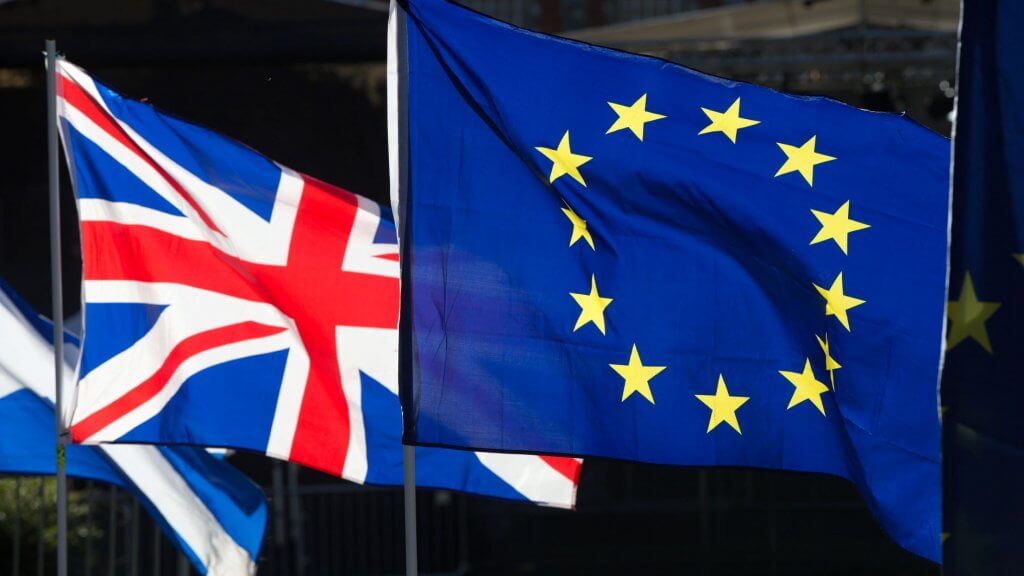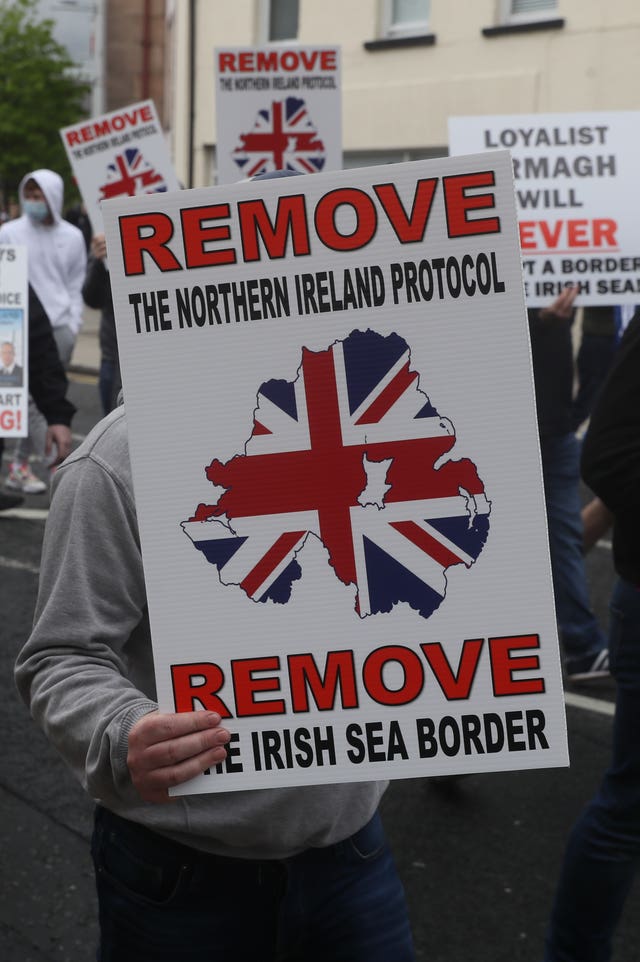US And EU Watch Closely As Frost Prepares To Set Out Plan For Northern Ireland

The US and Ireland have urged Boris Johnson’s Government to resolve issues around Northern Ireland’s post-Brexit trading arrangements within the terms of the existing arrangements.
Brexit minister Lord Frost will set out his plans for the Northern Ireland Protocol in response to concerns about the level of checks imposed on goods crossing the Irish Sea from Great Britain.
Lord Frost’s statement in Parliament comes after the Prime Minister used a phone call on Tuesday with his Dublin counterpart, Micheal Martin, to urge “pragmatism” in order to mend the issues being created by the post-Brexit terms.
Retailers including Marks & Spencer have warned that the current arrangements mean some products will not be able to be sold in Northern Ireland.

Lord Frost has previously warned that he could be prepared to unilaterally suspend parts of the deal, under powers contained in Article 16 of the Protocol, although he is not expected to go that far on Wednesday.
But any attempt to water down the implementation of the agreement – signed by Mr Johnson and negotiated by Lord Frost – would be met with a backlash from Brussels.
US President Joe Biden is proud of his Irish roots and his administration is taking a keen interest in the issue.
State Department spokesman Ned Price said “it’s something that we’re watching”, adding: “We do support a close relationship between the United Kingdom and the European Union, and we encourage them to negotiate within the existing mechanisms when differences do arise.”
“We’ve consistently said that we welcome the provisions in both the trade and co-operation agreement and the Northern Ireland Protocol between the UK and the European Union, which, importantly, help to protect the gains of the Belfast and Good Friday Agreement,” he told reporters.
Good Q&A session today at @Policy_Exchange with @BrandonLewis and on Northern Ireland.
We will set out our approach to Parliament later this month.https://t.co/Wy1LGKv6Fc pic.twitter.com/w3qqD3RsDT
— David Frost (@DavidGHFrost) July 8, 2021
Mr Biden’s climate envoy, John Kerry, a former secretary of state, told BBC Radio 4’s Today programme that the president is “deeply immersed” in the issue.
Ireland’s European affairs minister, Thomas Byrne, insisted a solution must be found within the confines of the existing agreement.
Asked about a reported UK proposal for an “honesty box” approach to checks, he told Today: “We’re going to listen carefully to what the British Government have to say.
“We’re willing to discuss any creative solutions within the confines of the Protocol, but we have to recognise as well that Britain decided itself to leave the single market of the European Union, to apply trade rules, to apply red tape to its goods that are leaving Britain, to goods that are coming in to Britain.”
Lord Frost will outline a strategy that seeks to eliminate most checks on goods travelling between Great Britain and Northern Ireland.
The Financial Times reported that he will push for an “honesty box” approach to allow companies in Great Britain which declare their goods are only destined for sale and use in Northern Ireland to skip border checks.
The Protocol was negotiated as part of Britain’s divorce from Brussels to avoid a hard border with Ireland, by effectively keeping Northern Ireland in the EU’s single market for goods.
But the introduction of checks on goods crossing the Irish Sea has angered Unionists, who have protested against it in recent months, arguing that the Brexit terms have weakened Northern Ireland’s links with the rest of the UK.
The UK Government has also said the checks and added red tape have caused trade between Great Britain and Northern Ireland to decline.
Marks & Spencer’s chairman warned there will be some “gaps on shelves” in Northern Ireland this Christmas due to problems with the post-Brexit agreement on the region.
Archie Norman, who has requested a meeting with Lord Frost, told Today: “This Christmas, I can tell you already, we’re having to make decisions to de-list product for Northern Ireland because it’s simply not worth the risk of trying to get it through.
“We’ve already made that decision. We’re waiting to see how serious it’s going to be, but if it’s anything like southern Ireland (the Republic of Ireland), and at the moment it’s set to be, then it’s going to be very, very serious for customers.”
The former Tory MP called for a “common-sense approach to enforcement focused on the ends, which is protecting consumers, not the bureaucratic means”.




